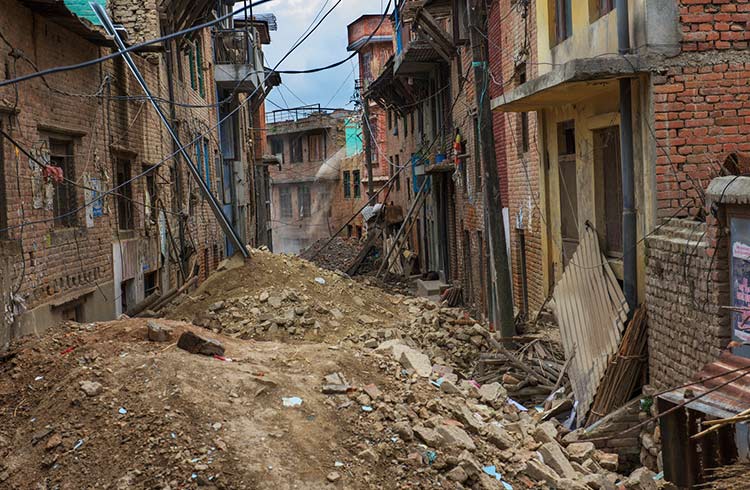Travel writer Prathap Nair shares his tips on how to stay respectful of your subjects and take care of yourself in times of tragedy.
 Photo © Getty Images / Alison Wright
Photo © Getty Images / Alison Wright
In an essay on reporting tragedies, Al Tompkins of the Poynter Institute for Media Studies says, “journalists’ symptoms of traumatic stress are remarkably similar to those of police officers and firefighters... yet journalists typically receive little support after they file their stories.”
Here's how to tread carefully so that neither you or your subject are damaged in the process.
- Approaching Your Subject
- Respect Local Customs
- Report Accurately on Crucial Details
- Give Yourself a Break
Approaching your subject
While writing about a tragedy, it’s particularly delicate approaching a survivor and asking them to relive a traumatic experience they’ve lived through.
Take extra care. Treat them with dignity, but at the same time show empathy for their circumstances.
Avoid asking questions related to their close family members/relatives who may have perished in the tragedy, unless they are forthcoming about it.
Respect local customs
Always respect local customs while trying to establish contact with someone involved in a tragedy.
In Nepal, for example, Hindu religious rules can sometimes mean that mourners (especially women) don't talk to strangers.
Family members will get protective of the victim during such circumstances. In such cases, it’s ethical to respect their privacy and wait it out.
Report accurately
Don’t miss any crucial and accurate details while writing the story – this includes facts, names, and other statistics. Always check back with the survivors to re-verify names and facts.
Take care though to not be not too explicit with any disturbing details while portraying an incident like the Nepal earthquake.
Avoid clichés used to describe someone's death or their state of mind.
Understand that you’re a reporter, but your job is not bigger than the emergency workers at the scene. Never let your presence negatively affect the rescue operations in any way.
Give yourself a break
It can be stressful to be consistently exposed to tragedies, and the victims affected by them.
Understand the need to give yourself a break from distressing situations.
The tremendous nature of this responsibility can break you down. In such cases, distract yourself from the task at hand.
Stay calm when shaken with graphic details narrated by your subject. It’s also okay to break down when encountering tragedies – you are human too.
Lastly, understand the risk you are taking by being in a fragile environment such as an earthquake-prone area. It’s important to stay alert, and stay safe.
Related articles
Simple and flexible travel insurance
You can buy at home or while traveling, and claim online from anywhere in the world. With 150+ adventure activities covered and 24/7 emergency assistance.
Get a quote


No Comments